Raptors notebook: Tank is on, bad challenges, Barnes bounces back
As we exit our holiday malaise and the Toronto Raptors approach the season's halfway point, let's check in on Canada's NBA team.
The dog days are here
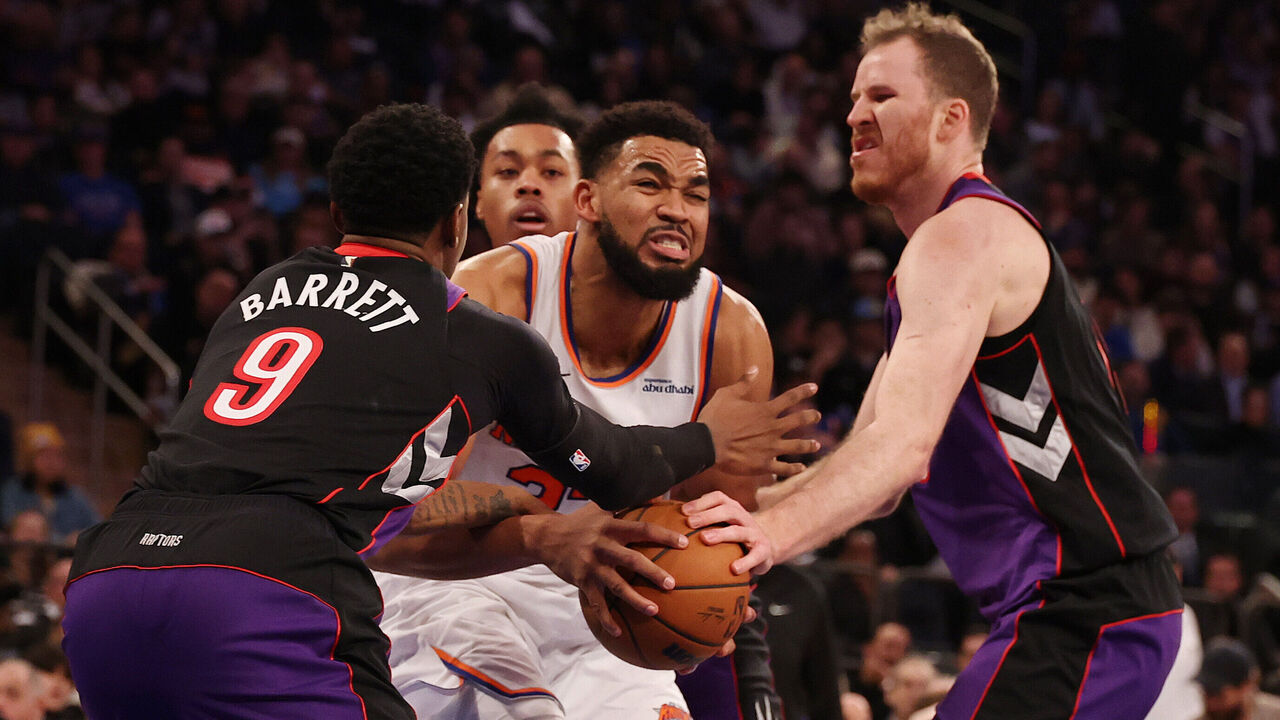
An inspired effort against the league-leading Cavaliers was a sight for sore eyes, but it's clear the bottom has fallen out for Toronto. The undermanned Raptors performed surprisingly well during a brutal early-season schedule. They hung in most games against superior competition, got valuable contributions from promising youngsters, and found small moral victories in their mounting losses.
That hasn't been the case over the past month while Toronto has lost 15 of 16 and been outscored by an average of 14.6 points per game. Since Dec. 23, its average point differential stands at a wretched minus-18.0.
Compare that with the team's first 22 games, which saw the Raptors - underdogs in every contest - go 7-15 with a point-differential (minus-3.3) that ranked ahead of wannabe contenders such as the Lakers and Pacers.
No matter how you slice it, a bad young team is getting worse as it gets healthier. So, what gives? Head coach Darko Rajakovic will tell you the team's core players need more reps together, lamenting the starting lineup's connectivity after a home loss Monday to Milwaukee. That's a fair point, given that the quintet of Immanuel Quickley, Gradey Dick, RJ Barrett, Scottie Barnes, and Jakob Poeltl hadn't suited up together until this week, and the trio of Barnes, Barrett, and Quickley hadn't shared the court since March.
Still, the recent lack of compete has been jarring for fans who deemed Toronto's first quarter of the season an "ethical" tank.
The Raptors probably weren't as good as they looked at times over the first six weeks, and the full-strength version of the team surely isn't this bad, but it's also quite possible Toronto just finally let go of the rope. Losing nearly 80% of your games in a season everyone knew was a rebuilding year is going to catch up to you eventually. It doesn't matter how much competitive pride players have, how positive the vibe is in the locker room, or how much work Rajakovic and his staff are doing to keep this young squad from splintering.
Therein lies the challenge for Rajakovic over the second half of the season. How do you keep a team engaged and together as the losses pile up and the results get uglier? How do you avoid the next few months being a complete waste of developmental time? How do you find ways to develop winning habits and plant the seeds another coach might get to reap in the future?
"In Year 1 of the rebuild, I never expected that this would be consistent throughout the whole year; that we were always going to be playing with a lot of force," Rajakovic told reporters after Toronto's last practice of 2024. "It's a roller-coaster season. That's what we have to understand. There's going to be ups and downs. Improvement and progress is never linear. At some point, you get tired, you get bummed, you've got to learn how to bounce back. There's a lot of adversity, and we're feeling that adversity, and it's good. We're going to use that adversity to our advantage - to get information that we need, to improve, to focus on the most important things, and to see growth. That's what this whole season is about, and to also learn who can rise to the challenge and who cannot."
Challenges have been a ... challenge
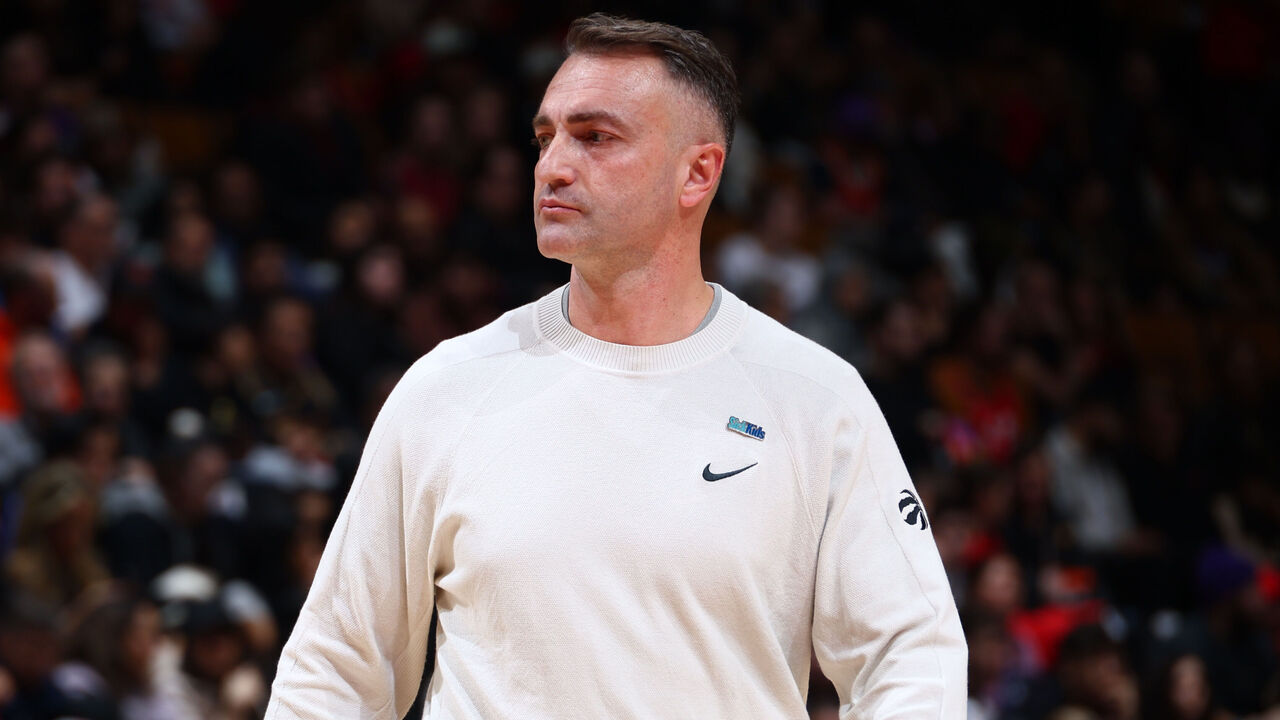
One area Rajakovic and his staff can improve is the coach's challenge. Too often, the Raptors are wasting their challenges on low-leverage plays that also appear to have low chances of success.
Coaches should generally use challenges on calls that result in points going on or coming off the board, change-of-possession plays in crunch time, or perhaps to keep star players from fouling out late in games. The ability to retain their challenge if their first attempt is successful gives coaches more leeway, but they should still exercise caution and discipline when risking it early in games. The Raptors have not.
Take Wednesday's loss in New York, for example. Rajakovic used his challenge to contest a loose-ball foul on Poeltl with 6.3 seconds remaining in the first half. The Knicks weren't in the bonus, so Rajakovic was not trying to save two potential free throws. At best, Toronto would have taken possession with little time left in the half.
That's never a good enough reason to challenge, but if you are going to use it in that situation, you better be sure it's the right decision. As has become the norm for the Raptors, their strange early challenge was unsuccessful, meaning they also forfeited a timeout.
Toronto is now 11-of-25 (44%) on challenges this season. Through Jan. 5, the rest of the NBA had a 58.9% success rate. Whether Rajakovic is making the calls himself or he's getting bad advice from back-benchers on his staff, the Raptors need to reassess their strategy. As the head coach said, this season is about learning who can rise to the challenge and who can't.
A real PG!
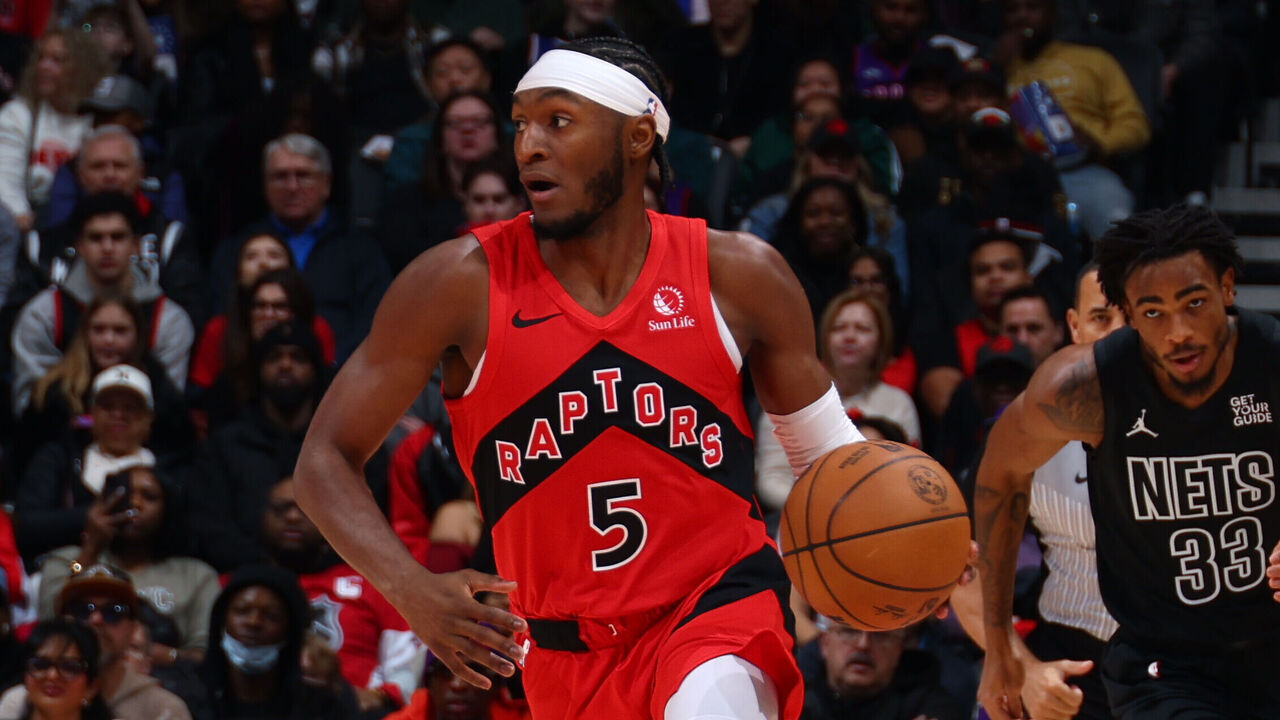
Quickley has been understandably rusty since returning from a left elbow injury that sidelined him for 22 games. Toronto's point guard of the future has been inefficient on the offensive end and shaky (to say the least) defending the point of attack. But it's clear to see how much the Raptors missed their one competent lead guard.
Quickley's numbers and effectiveness will come around. But his ability to run the offense, get Barnes operating off the ball, and create for himself from deep have already made the Raptors more functional, even if the results don't agree. If nothing else over the next few months, Toronto needs Quickley to develop chemistry with Barnes, improve his finishing, and let it fly from deep more often.
Barnes bounces back
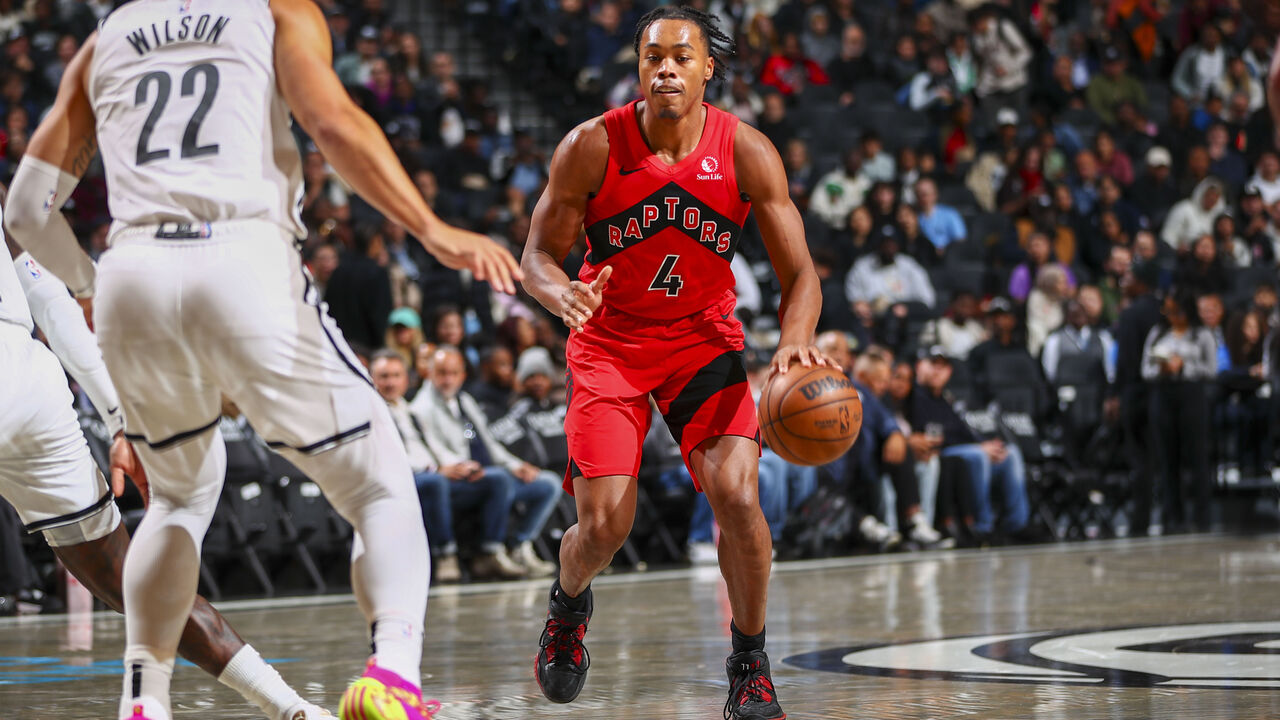
One silver lining in the recent slide is the team's cornerstone player has been playing his best and most consistent ball of the season. Whether it's tied to Quickley's return or Barnes getting healthier after an ankle injury (plus knee soreness and quad tightness) robbed him of his explosiveness, the 2024 All-Star has been feasting on a much healthier shot diet of late.
During a 12-game stretch from Nov. 21-Dec. 22 when Barnes returned from an orbital fracture and then a sprained ankle, 45.3% of his field-goal attempts came from 3-point territory. That's far too high for a shooter as poor as Barnes and for a forward as physically imposing as he can be. The low point came in a home loss to the Rockets when Barnes went 0-for-8 from deep while barely touching the paint in 39 minutes.
Since then, Barnes has been more committed to bullying his way to the paint, where he's developed a nice touch and improved his mid-range game. His production and efficiency have predictably rebounded.
Young players in rebuilding situations should be empowered to experiment with their skill sets, as Barnes has done, but they should also embrace the most prudent recipe for success. No one should be shutting the door on the possibility Barnes develops into a better-shooting point forward in the future, but as more of an off-ball connector and playmaking forward - who's also found another gear on the defensive end - there's still a path to stardom.
For the season, Barnes is averaging career-highs in points (20.4), assists (6.5), and steals (1.4), and he is one of only five players averaging at least 20 points, eight rebounds, and five assists (along with Nikola Jokic, Giannis Antetokounmpo, Luka Doncic, and Domantas Sabonis).
Boucher on a heater
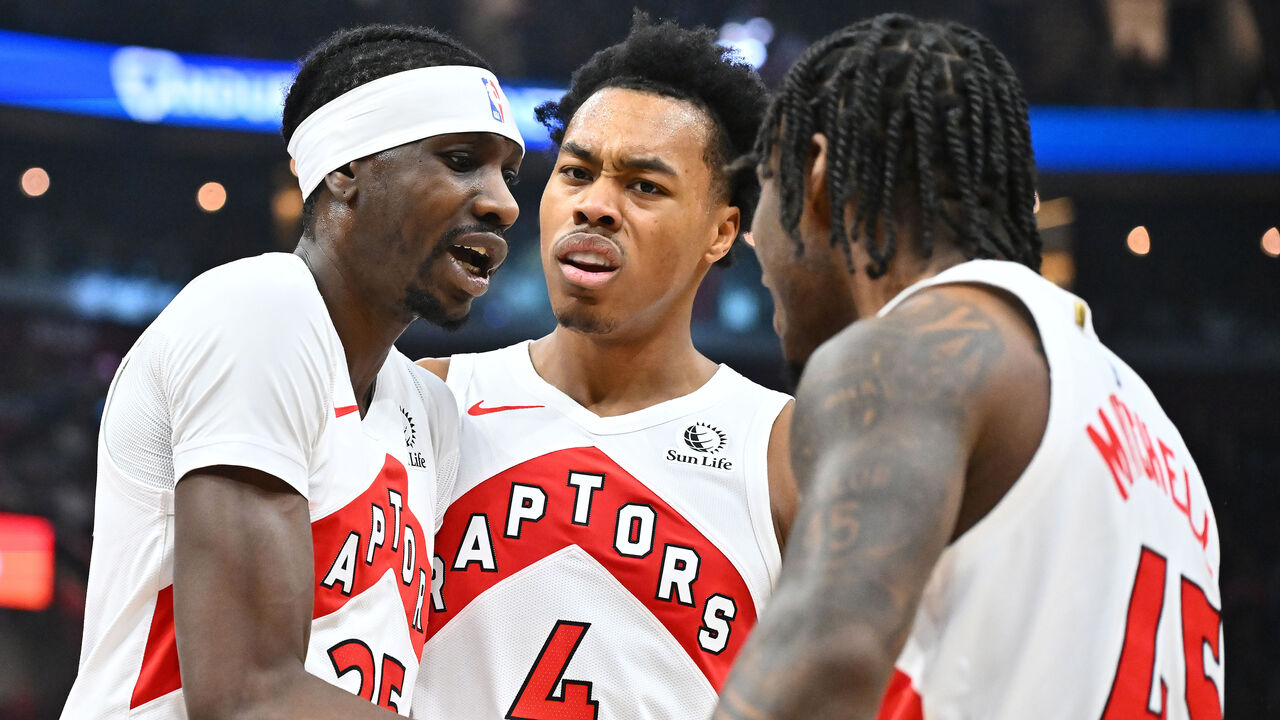
Chris Boucher's basketball IQ and decision-making have landed him in the doghouse of multiple Raptors coaches over the years, but one thing he's always done is stay ready and bring endless energy off the bench. The streaky big man is enjoying one of his better stretches lately, averaging roughly 11 points and four rebounds in only 16 minutes over his past 10 games while shooting 62.5% inside the arc and 47.5% from deep. Perhaps most impressively, the Raptors have lost Boucher's minutes by only 1.8 points per game over the past month while otherwise posting the league's worst point-differential.
If the Raptors are going to squeeze any value whatsoever out of this year's trade deadline, Boucher's recent play might be why. Even if it's just second-round draft equity, the bouncy reserve and his $10.8-million expiring contract should appeal to a postseason contender or two.
Minor roster moves
In waiving center Bruno Fernando before his contract became guaranteed, the Raptors brought their roster down to 14 players (plus three two-way players), which opened up a spot to sign Nigerian-Canadian forward Eugene Omoruyi to a 10-day contract.
Omoruyi is an Orangeville Prep product who gave up some money to play for Raptors 905 and has been rewarded for his strong work in the G League. The 27-year-old is a tough player and efficient finisher inside who has improved his playmaking and shooting this season.
In the long run, my money's still on that 15th spot being used to convert Jamison Battle's contract from a two-way to a standard NBA deal.
Joseph Casciaro is theScore's lead Raptors and NBA reporter.